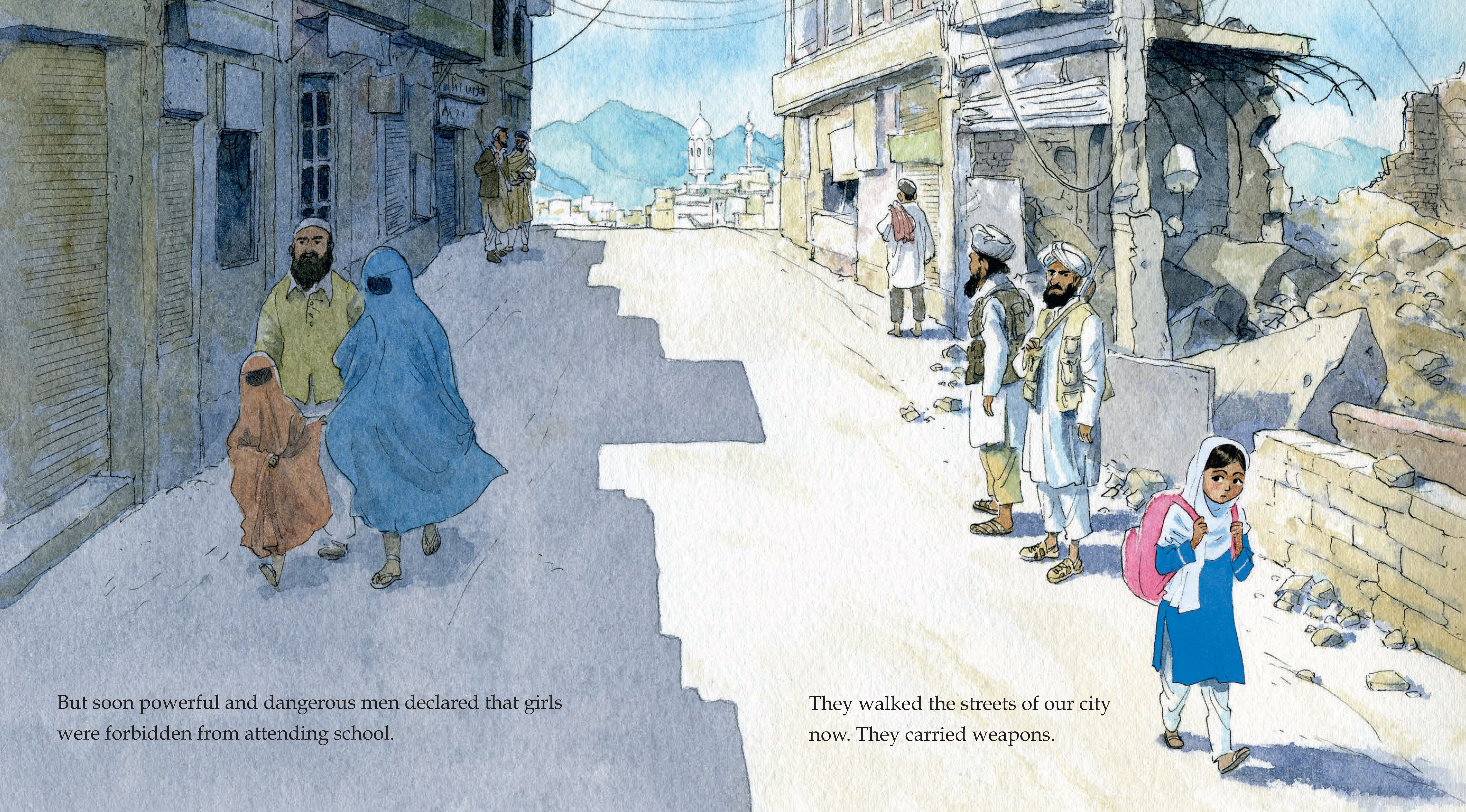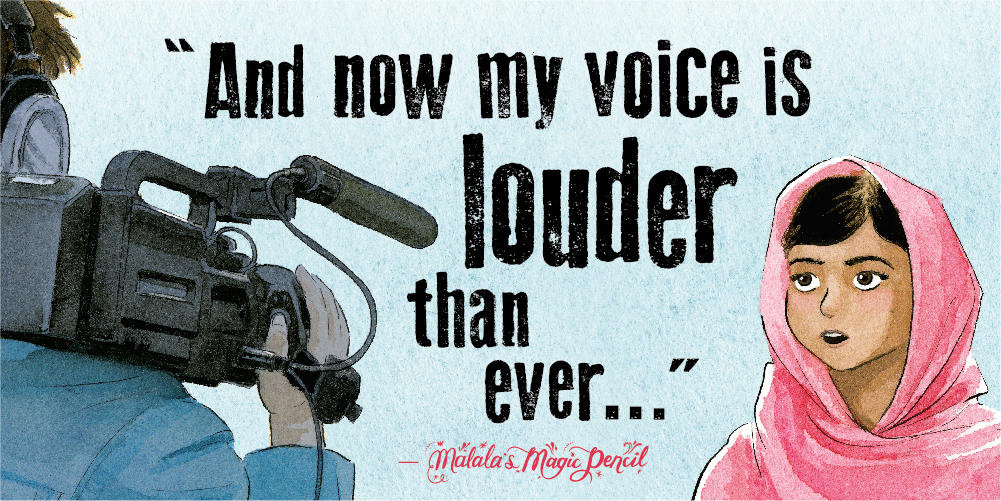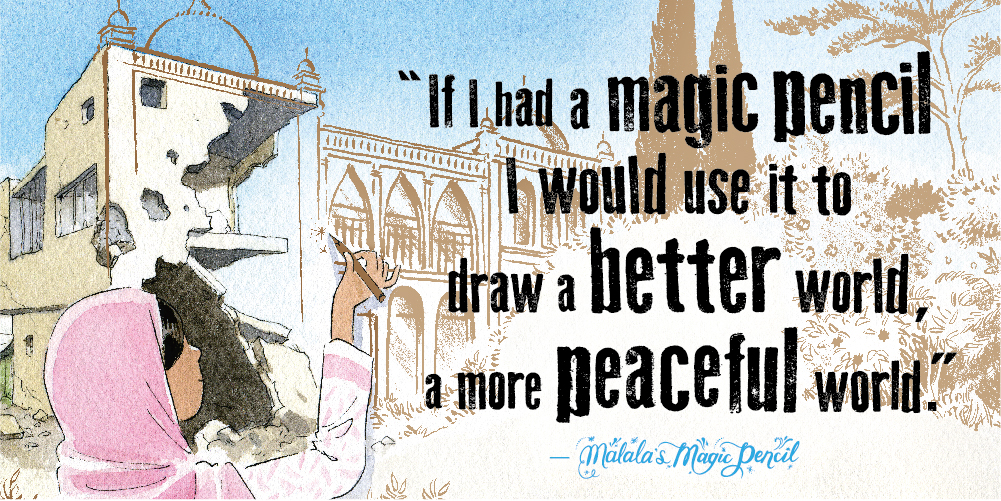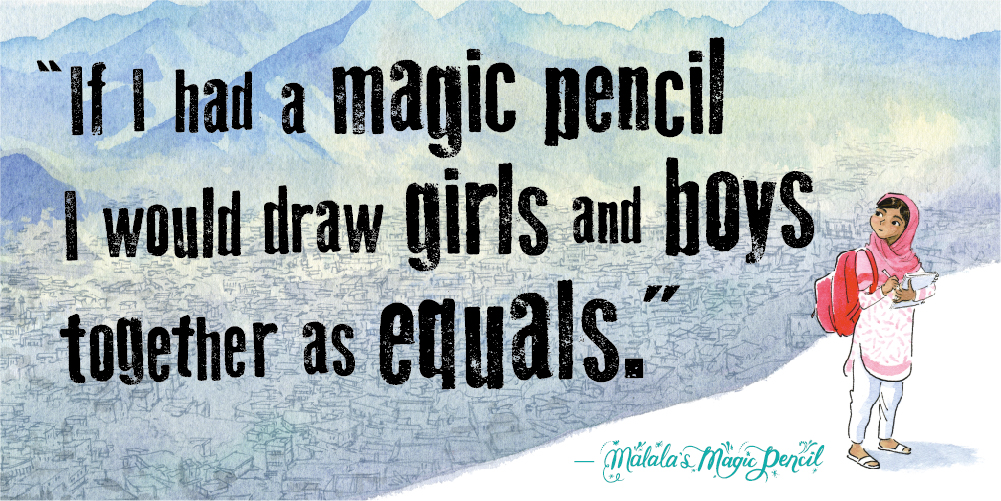- Home |
- Search Results |
- 5 empowering messages from Malala’s Magic Pencil
5 empowering messages from Malala’s Magic Pencil
This beautifully illustrated picture book tells Malala's story and shows the worldview that allowed her to hold on to hope and to make her voice heard even in the most difficult of times. Here are five of its most empowering messages.

1. ‘One child, one teacher, one book and one pen can change the world.’
Activist Malala Yousafzai is the youngest ever recipient of the Nobel Peace Prize and has campaigned fantastically for girls’ education. In Malala’s Magic Pencil, she describes how, growing up in the beautiful Swat Valley, she loved going to class but her right to attend school was threatened just because she was a girl. So, she decided to speak out…

2. ‘I spoke for all the girls in my valley who couldn’t speak for themselves.’
Malala came to public attention when she was only 11, writing for BBC Urdu about life under the Taliban. She describes how, when girls from her valley began dropping out of school, she found her voice and started sharing her writing with the world.

3. ‘And now my voice is louder than ever…’
Despite facing much adversity – including an attempt to silence her – Malala kept speaking up and speaking out. Her account of finding ‘a chorus’ of supporters internationally, all raising their voices for those in need, will inspire everyone to think of the world as a family.

4 . ‘If I had a magic pencil I would use it to draw a better world, a more peaceful world.’
Malala’s message that your own magic pencil – your voice, your words, your art – can make a real difference to the world we live in, is profound and empowering. Any change-makers looking for a place to start will feel inspired by Malala’s encouragement that small actions can create big change.

5. ‘I would draw girls and boys together as equals.’
Gender equality is at the heart of Malala’s picture book so it’s the perfect starting point for budding feminists. It’ll provoke questions about why some girls are forbidden from going to school and what we can all do to organise for change. Ultimately, it imagines a hopeful future world where girls and boys stand together as equals.